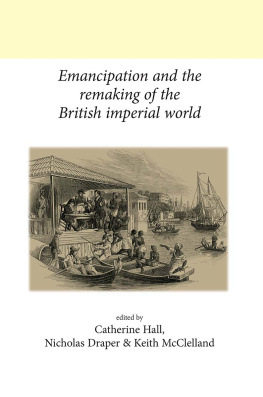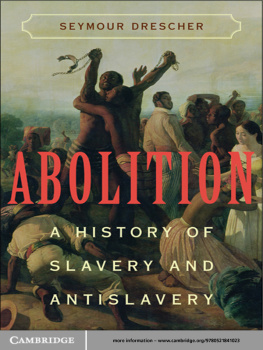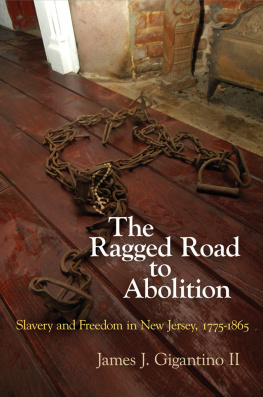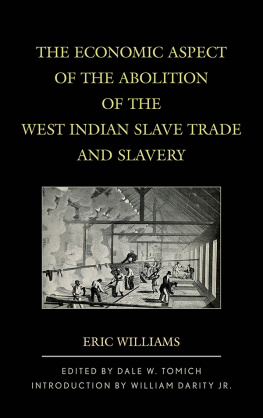The Caribbean in Europe
LEGACIES OF WEST INDIAN SLAVERY
Lectures and conference papers given during the William Wilberforce 150th anniversary celebrations at the University of Hull, July 1983
OUT OF SLAVERY
Abolition and After
Edited by Jack Hayward
ABOLITION AND ITS AFTERMATH
The Historical Context 1790-1916
Edited by David Richardson
DUAL LEGACIES IN THE CONTEMPORARY CARIBBEAN
Continuing Aspects of British and French Dominion
Edited by Paul Sutton
THE CARIBBEAN IN EUROPE
Aspects of the West Indian Experience in Britain, France and The Netherlands
Edited by Colin Brock
First published 1986 in Great Britain by
FRANK CASS AND COMPANY LIMITED
Gainsborough House, 11 Gainsborough Road, London, E11 1RS, England
and in the United States of America by
FRANK CASS AND COMPANY LIMITED
c/o Biblio Distribution Centre
81 Adams Drive, P.O. Box 327, Totowa, N.J. 07511
Copyright 1986 Frank Cass & Co. Ltd.
British Library Cataloguing in Publication Data
The Caribbean in Europe: aspects of the West Indian experience in Britain, France and the Netherlands.
1. West Indians Europe History
20th century
I. Brock, Colin
305.896973904 D1056.2.W4
ISBN 0-7146-3263-5
Library of Congress Cataloging-in-Publication Data
The Caribbean in Europe.
Includes index.
1. West Indians Great Britain. 2. West Indians
Europe. 3. Great Britain Social conditions 1945
4. Europe Social conditions 20th century.
I. Brock, Colin.
DA125.W4C37 1986 940 86-6105
ISBN 0-7146-3263-5
All rights reserved. No part of this publication may be reproduced, stored in a retrieval system, or transmitted in any form, or by any means, electronic, mechanical, photocopying, recording, or otherwise, without the prior permission of Frank Cass and Company Limited.
Contents
Colin Brock
Elizabeth M. Thomas-Hope
Paul Rich
Ceri Peach
Malcolm Cross
John Rex
Horace Lashley
Willem Koot, Varina Tjon-A-Ten and Petrien Uniken Venema
Amon Saba Saakana
John J. Figueroa
Bruce Carrington and Edward Wood
This book is the fourth in a series of volumes to emerge from the commemoration by the University of Hull of the 150th anniversary of the abolition of slavery in the British Empire, and in particular an international conference held to discuss some of the legacies of Caribbean slavery and its abolition. Most of the chapters of this book originated as papers presented on the final day of that conference, and as organiser of that day I should like to express my gratitude to all contributors for their cooperation; some of the chapters have been invited subsequent to the conference.
In no way does this collection purport to be a comprehensive or balanced coverage of the wide range of issues subsumed within the title. In the event, most of the papers coming forward for publication were concerned with Britain, but it was still felt appropriate to work under the title The Caribbean in Europe in order to provide a broader perspective on the black British experience. As the first chapter contends, the relative recency of significant Antillean immigration into metropolitan France and the Netherlands places those territories in a situation through which the United Kingdom has largely passed. Yet the myriad problems of the black British population remain, and are to some degree compounded by the social and economic constraints of inner city environments and differential difficulties faced by successive generations.
Populations of West Indian origin in Britain have much to be proud of in respect of achievements realised in adverse circumstances. In general, however, these are successes gained despite the system, and it still remains for fundamental and genuine equality to be reached. Whether the wider context of the European Community will provide a more positive framework is a matter of conjecture. Certainly it has directed much needed funds towards the resolution of urban problems, though the results in general have been modest. Rather than, or in addition to, financial aid it is the realisation of a real European community through free movement of labour that may help to achieve the major attitudinal shift that must occur before any real progress in this area is likely.
I would like to express my gratitude to Shirley Brock for retyping several of the contributions.
Colin Brock
Acknowledgments
George Campbells poem Holy is quoted by permission of the author. The excerpt from Banana Bottom (Pluto Press, London and Harcourt Brace Jovanovich, New York) appears by permission of Carl Cowl for the Estate of Claude McKay.
Colin Brock is Chairman of the International Education Unit, University of Hull Institute of Education.
Bruce Carrington is Lecturer in Education at the University of Newcastle-upon-Tyne.
Malcolm Cross is Deputy Director of the Centre for Research in Ethnic Relations, University of Warwick.
John Figueroa was formerly Professor of Education in the University of the West Indies.
Willem Koot, Varina Tjon-A-Ten and Petrien Uniken Venema are at the Institute voor Pedagogische en Andragogische Wetenschapen, Rijksuniversiteit Utrecht, The Netherlands.
Horace Lashley is Senior Education Officer, Commission for Racial Equality, London.
Ceri Peach is Fellow of St Catherines College, Oxford.
John Rex is Research Professor and Associate Director of the Centre for Research in Ethnic Relations, University of Warwick.
Paul Rich is Research Fellow at the Centre for Research in Ethnic Relations, University of Warwick.
Amon Saba Saakana is Director of Caribbean Cultural International, London.
Elizabeth Thomas-Hope is Lecturer in Geography at the University of Liverpool.
Edward Wood is Lecturer in Education at the University of Durham.
Part A
Migration, Settlement and Disparity
1
The West Indian Dimension of Western Europe
COLIN BROCK
This introductory chapter attempts to set the predominantly British-based discussion of subsequent contributions in a broader context by examining, albeit briefly and from documentary sources alone, the West Indian component of both France and the Netherlands. Consideration of these two cases will be preceded by some general remarks in respect of the wider temporal, spatial and cultural dimensions involved, and succeeded by comparative comment involving Britain also.
The Amerindian period apart, the West Indies emerged politically, economically and even culturally as an extension of Europe part of the legacy of the so-called Age of Discovery. To be sure, as Naipaul rightly asserts, the colonial West Indies were manufactured societies; labour camps; creations of empire. In respect of the legacy of slavery, he continued:
It has been said that in concentration camps the inmates began after a time to believe that they were genuinely guilty. Pursuing the Christian Hellenic tradition, the West Indian accepted his blackness as his guilt, and divided people into the white, fusty, musty, dusty, tea, coffee, cocoa, light black, dark black. He never seriously doubted the validity of the culture to which he aspired. In the French territories he aimed at Frenchness; in the Dutch territories at Dutchness; in the English territories he aimed at simple whiteness and modernity, Englishness being impossible.






